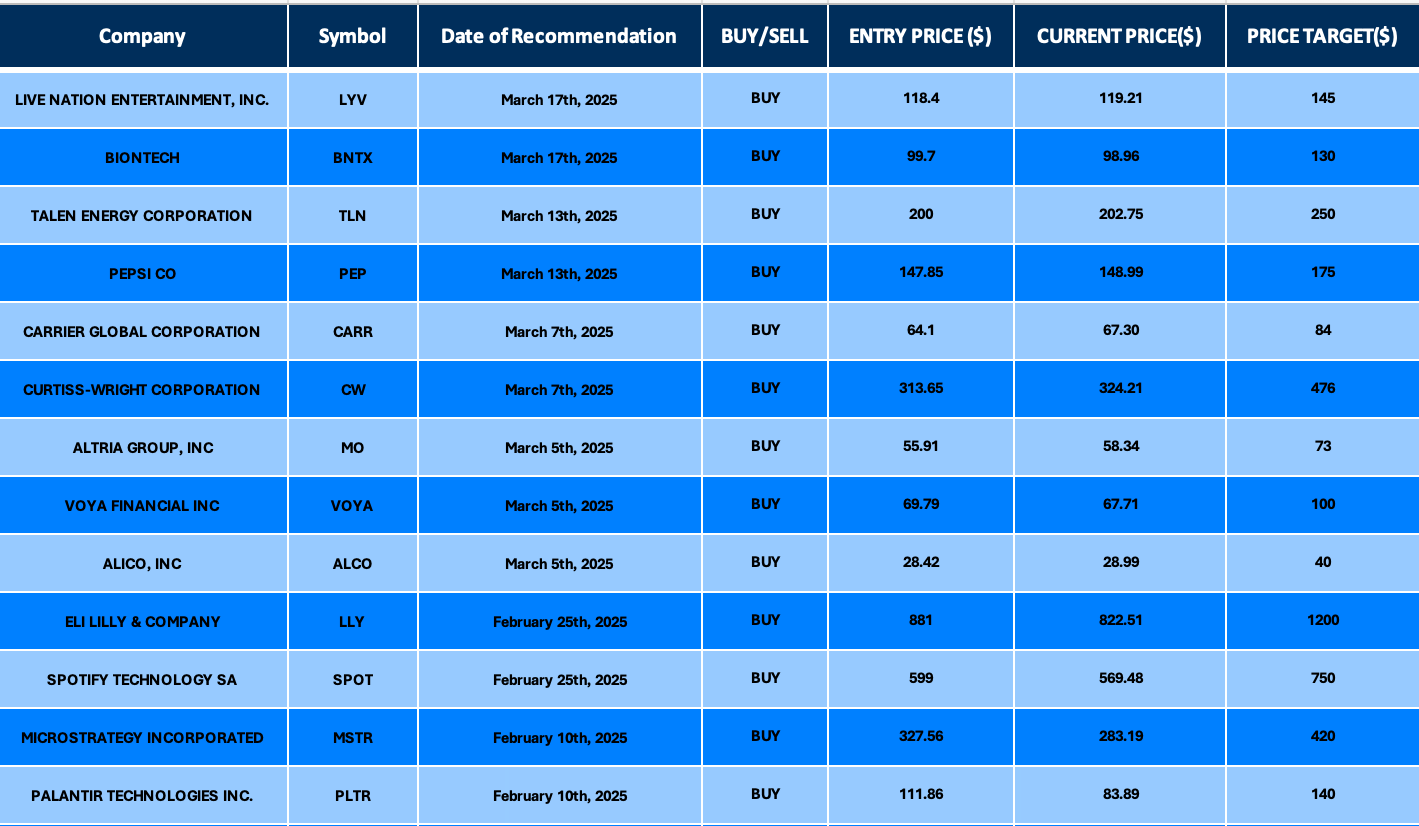
Date Issued – 3rd April 2025
Preview
Asian markets tumbled as President Trump’s sweeping tariffs sparked fears of a global trade war, with Japan’s Nikkei 225 falling 2.8% to an eight-month low. Bitcoin slid 0.8% to $83,421, reflecting risk-off sentiment, while gold surged to record highs. Ray Dalio warned that tariffs could prepare economies for geopolitical conflicts but risk inflation and stagflation. BlackRock’s $22.8 billion ports deal faces scrutiny in Panama, potentially delaying its completion amid legal and geopolitical tensions. Meanwhile, Mitsubishi announced a $27 billion investment plan over three years, targeting long-term growth and shareholder returns, supported by majority stakeholder Berkshire Hathaway.
Asian Markets Sink as U.S. Tariffs Trigger Global Trade Concerns
Asian equities plunged on Thursday following President Donald Trump’s announcement of sweeping tariffs on imports, including a 10% universal levy and higher reciprocal duties on countries with significant trade barriers. Japan’s Nikkei 225 led the selloff, dropping 2.8% to an eight-month low, while the broader TOPIX index fell 3.1%.
Export-driven economies like China, Japan, and Vietnam face significant pressure, with new tariffs as high as 54% on Chinese imports and 25% on foreign-made autos. Broader Asian markets followed suit, with the Hang Seng down 1.8%, South Korea’s KOSPI losing 1.2%, and Australia’s ASX 200 slipping 1.1%.
Meanwhile, China’s services PMI data offered a slight silver lining, exceeding expectations at 51.9, though it did little to stem market declines.
Investment Insight
Heightened trade tensions are likely to exacerbate volatility in global markets, with export-heavy sectors in Asia facing earnings risks. Investors should consider rotating into defensive plays, such as domestic-focused sectors and dividend-yielding assets, while exercising caution with companies directly exposed to U.S.-bound exports, particularly in the auto and technology industries.

Bitcoin Slides to $83.4K Amid Risk-Off Mood Following Trump Tariffs
Bitcoin dropped 0.8% to $83,421.50 on Thursday as global markets reacted to the announcement of sweeping U.S. tariffs. President Trump’s policy includes a 10% universal import tariff and steep reciprocal duties on key trading partners, with China facing a combined 54% tariff. The risk-off sentiment drove investors away from volatile assets like cryptocurrencies, favoring safe-haven assets such as gold, which hit record highs.
Crypto-related stocks also tumbled, with Coinbase falling 7.5% and Bitcoin miners Marathon Digital and Riot Platforms sliding over 7%. Among altcoins, Ethereum fell 1.2% to $1,832.57, while Solana and Polygon lost 3.2% and 3.5%, respectively.
Investment Insight
Bitcoin’s decline highlights its correlation with broader market risk, challenging its reputation as a hedge during uncertainty. Investors should approach cryptocurrencies cautiously in the current risk-averse environment, considering diversification into traditional safe-haven assets or defensive equities to mitigate volatility.
Ray Dalio: Tariffs Signal Strategic Preparation Amid Rising Global Conflict Risk
Ray Dalio, founder of Bridgewater Associates, emphasized that tariffs serve a dual purpose beyond generating tax revenue—they can reduce foreign reliance and prepare economies for potential global conflicts. In a LinkedIn post coinciding with the Trump administration’s new reciprocal tariffs, Dalio argued that import taxes help mitigate supply chain dependencies, making domestic industries more resilient, albeit less efficient.
He warned, however, that tariffs often lead to domestic inflation and global stagflation. Consistent with his longstanding concerns, Dalio reiterated that the world is heading toward heightened geopolitical strife and that the U.S. must urgently address its unsustainable debt-to-GDP ratio, now at 120%. Without action, Dalio cautioned, the U.S. risks a financial “heart attack.”
Investment Insight
Dalio’s commentary underscores the importance of diversification and risk management as geopolitical tensions escalate. Investors should monitor sectors poised to benefit from domestic supply chain strengthening, while remaining cautious of inflationary pressures. Defensive plays in energy, agriculture, and critical manufacturing may offer opportunities in an increasingly protectionist global economy.
Could Panama Derail BlackRock’s $22.8 Billion Ports Deal?
BlackRock’s $22.8 billion acquisition of CK Hutchison’s global port assets, including two major Panama Canal ports, faces potential delays as Panama audits the 25-year port concession granted to CK Hutchison. The Panama Ports Company operates the Balboa and Cristobal ports, critical trade hubs. Panama’s Comptroller General is investigating alleged irregularities in the concession renewal, raising questions about its constitutionality.
If the Supreme Court invalidates the contract, the concession could be revoked, jeopardizing the deal and risking international arbitration. Meanwhile, U.S.-China tensions loom large, with critics in Beijing calling the deal a betrayal of Chinese interests, while the U.S. sees it as bolstering its strategic position near the canal.
Investment Insight
BlackRock’s push into global infrastructure aligns with its strategic vision, but geopolitical and legal risks could complicate the deal and delay returns. Investors should watch for potential fallout from Panama’s audit and the U.S.-China trade conflict. Diversification across infrastructure and other asset classes may help mitigate exposure to geopolitical headwinds.
Mitsubishi Unveils $27 Billion Investment Plan to Drive Growth
Mitsubishi Corp announced plans to invest 4 trillion yen ($27 billion) over the next three years as part of its new growth strategy, targeting net profit of 1.2 trillion yen by the 2027/28 financial year. The Japanese trading giant will allocate 1 trillion yen for sustaining capital expenditures and over 3 trillion for growth investments.
Mitsubishi also reaffirmed its commitment to progressive dividends and flexible share buybacks, including plans to repurchase up to 1 trillion yen of shares through March 2026. Despite forecasting a net profit decline to 700 billion yen for the current fiscal year, the company announced a 10-yen dividend increase to 110 yen per share. Majority shareholder Berkshire Hathaway, with a 9.67% stake, stands to benefit from these moves.
Investment Insight
Mitsubishi’s ambitious investment plan signals confidence in long-term growth, despite near-term profit pressures. Investors should monitor its allocation strategy and execution, particularly in growth sectors like energy and infrastructure. Share buybacks and dividend increases suggest a shareholder-friendly approach, making Mitsubishi an attractive option for income-focused investors amidst Warren Buffett’s endorsement.
Conclusion
Global markets are grappling with heightened volatility as U.S. tariffs raise fears of a trade war, impacting equities, cryptocurrencies, and commodities alike. With Bitcoin reflecting broader risk-off sentiment and Ray Dalio highlighting tariffs’ far-reaching economic implications, investors face growing uncertainty. BlackRock’s Panama ports deal underscores the geopolitical stakes, while Mitsubishi’s bold $27 billion investment plan offers a reminder of long-term growth opportunities amid short-term headwinds.
Staying diversified and focusing on defensive assets, domestic growth sectors, and shareholder-friendly companies could be key strategies as markets navigate escalating geopolitical and economic challenges.
Upcoming Dates to Watch
- April 3rd, 2025: Initial Jobless Claims, US Trade deficit
- April 4th, 2025: US Employment Report, Fed Chair Jerome Powell to Speak
Find below some of our Buy/Sell Recommendations. Balfour Capital Group is a distinguished global boutique investment management firm with $350 million AUM and over 1000 Clients.

Disclaimer: This post provides financial insights for informational purposes only. It does not constitute financial advice or recommendations for investment decisions.




